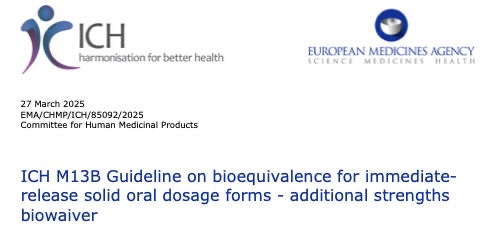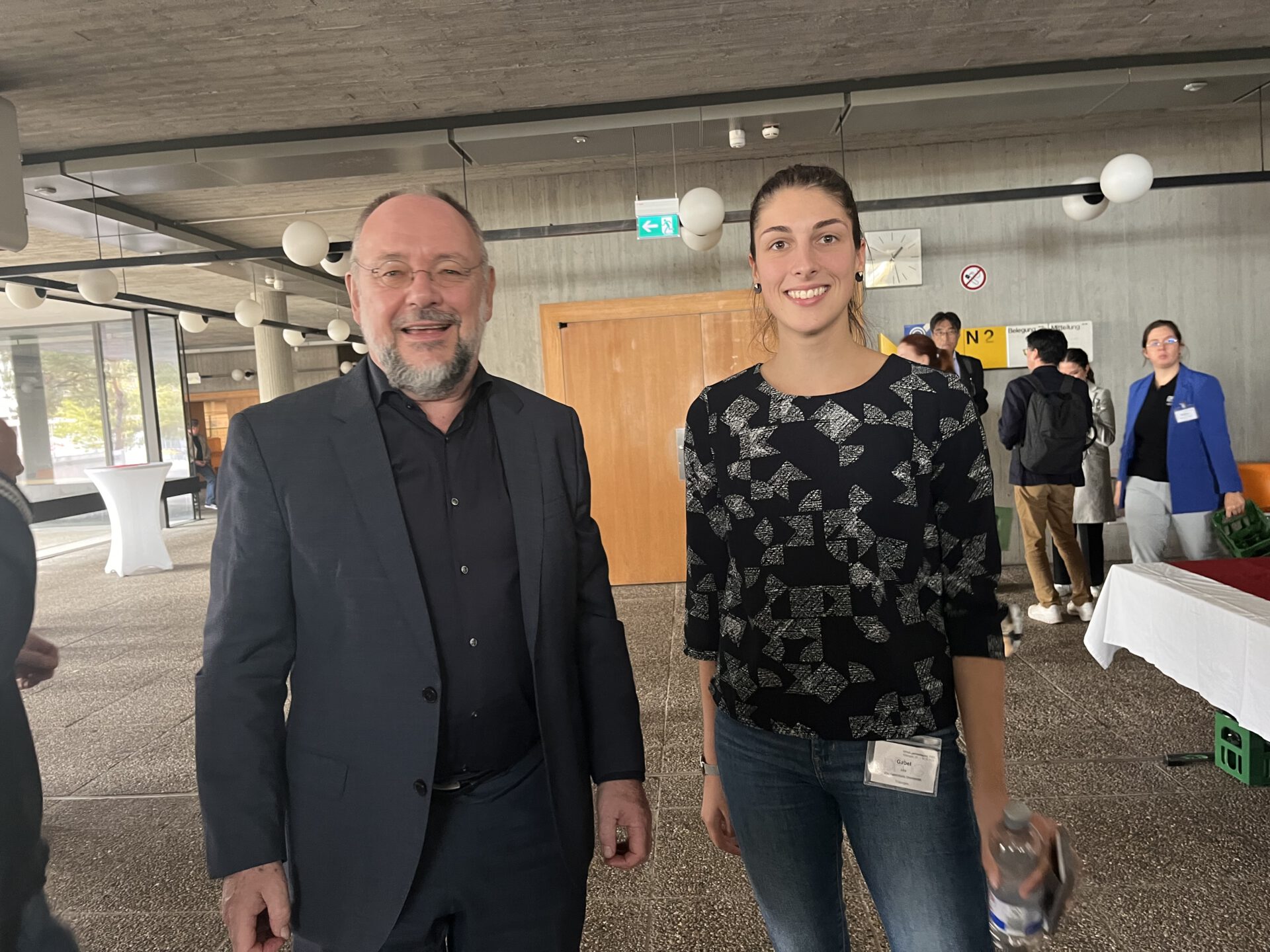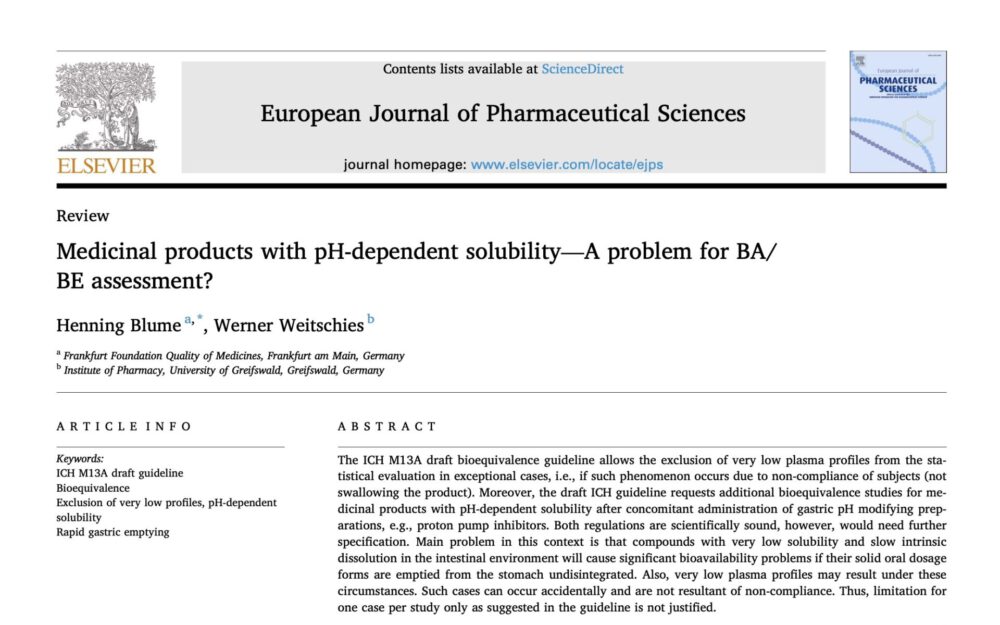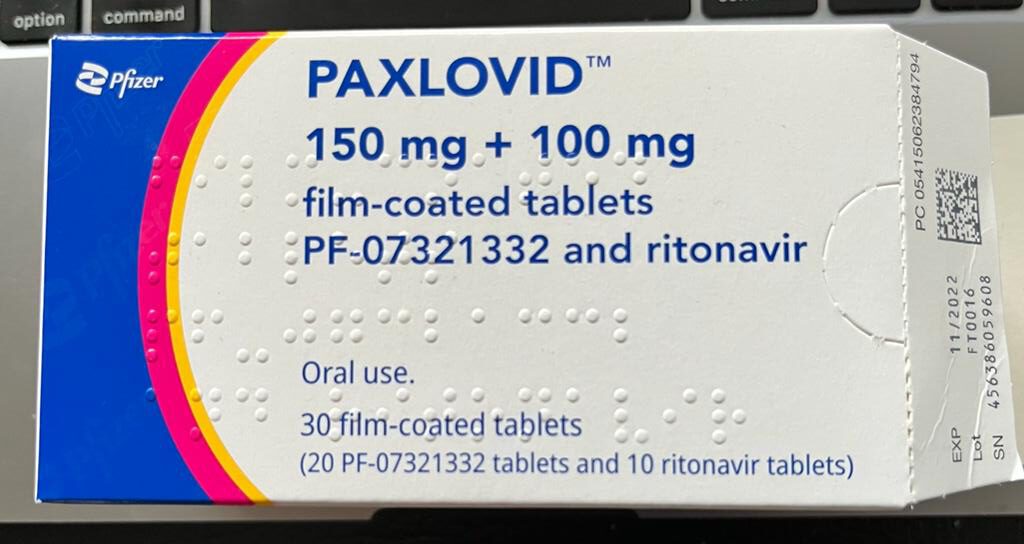News
July 8, 2025
FFQM commented ICH M13B Draft Guideline

© Africa Studio / Adobe Stock
Together with experts of the EUFEPS (European Federation for Pharmaceutical Sciences) Network on Bioavailability and Biopharmaceutics, the German Pharmaceutical Society (DPhG) and the House of Pharma and Healthcare, Frankfurt, the Frankfurt Foundation Quality of Medicines prepared comments on the draft ICH M13B guideline. These comments and proposed amendments have been submitted to the European Medicines Agency (EMA).
The new guideline regulates options for justifying the waiver of additional bioequivalence studies in the development of medicinal products with multiple strengths. It thus represents a first supplement to the general ICH Bioequivalence Guideline M13A (https://www.ema.europa.eu/en/ich-guideline-m13a-bioequivalence-immediate-release-solid-oral-dosage-forms-scientific-guideline).
The experts recommended clarifications to certain regulations, e.g., the need to conduct in vitro comparative studies using multiple batches and regarding the rounding of mean results. Specific proposals for changes were submitted on the following topics:
- Ignoring certain excipients (e.g., odorants or flavorings) that are not expected to affect BA/BE when determining a dose-proportional composition of strengths
- Definition of “high-potency” drug products in the case of fixed-dose combinations
- Biowaivers in the case of later extensions of a product line with additional dose strengths
- Comparison of dissolution profiles between dose strengths and verification of their “comparability”
- Methods for bootstrapping
All comments and proposed amendments submitted to EMA will be published on the EMA website in due course. The revised final guideline is expected to be available in a few months.

February 19, 2025
Quality of Medicines Award 2025 announced.
The Frankfurt Foundation Quality of Medicines (FFQM) and the German Pharmaceutical Society (DPhG) jointly award the the Quality of Medicines prize 2025 for outstanding scientific achievements in the field of optimizing and ensuring the quality of drugs. We would like to support fundamental investigations into the quality of drugs on the market as well as innovative concepts to improve them.
The DPhG President and the Chairman of the Board of Directors of the FFQM decide on the award based on a recommendation from the Foundation’s Scientific Advisory Board. The award is associated with prize money of €2,000 and will be presented at the DPhG annual conference in 2025 in Freiburg.
Applications can be submitted electronically to the DPhG office (info@dphg.de) or to the Frankfurt Foundation Quality of Medicines (info@frankfurt-foundation.org) until July 15, 2025.
Prof. Dr. Ulrich Jaehde, Präsident der DPhG
Prof. Dr. Henning Blume, Vorstandsvorsitzender der FFQM

© Africa Studio / Adobe Stock

December 22, 2024
Congratulations, Julia Gabel
Julia Gabel has successfully completed her doctorate with the PhD thesis on the topic “Investigation of the Quality of Essential Medicines in African Countries and of Medicine Quality Screening Technologies for Use in Low-Resource Settings”. The Frankfurt Foundation Quality of Medicines had supported her doctoral studies with a one-year scholarship. We would like to congratulate Julia Gabel for the “summa cum laude” assessment of her doctoral work.
The PhD thesis was supervised by Prof. Dr. Lutz Heide, Pharmaceutical Institute of the Eberhard Karls University of Tübingen. Prof. Heide’s research program focuses on the problems with counterfeit drugs and the challenges of managing healthcare supply chains in low- and middle-income countries.
Julia Gabel’s PhD thesis investigated various issues, some of which are discussed in more detail below.
Information on the occurrence of substandard or counterfeit/falsified drug products in low- and middle-income countries is often imprecise and contradictory. In cooperation with a church-based pharmaceutical supply organization in Nigeria, the Faith-Based Central Medical Foundation, Julia Gabel investigated the quality of 13 essential drugs from various local sources. An important aim of these investigations was to support the local organization in ensuring the quality of the medications it purchases and supplies to Nigerian healthcare facilities. Particularly alarming results were found for dexamethasone tablets, with around 95% of the 22 samples tested not meeting the quality requirements of the pharmacopoeia. This finding was additionally confirmed by an independent laboratory. As a consequence, the Nigerian Medicines Regulatory Agency immediately ordered the withdrawal of all dexamethasone products objected by Julia Gabel’s tests from the market.
April 11, 2024
“Medicinal products with pH-dependent solubility - A problem for BA/BE assessment?” FFQM enables Open Access to this ICH M13A commentary.

We are pleased that, following the conference report on the EUFEPS Open Forum on the ICH M13A Draft Guideline (https://doi.org/10.1016/j.ejps.2024.106741), a commentary on the draft guideline „Medicinal products with pH-dependent solubility – A problem for BA/BE assessment? has now also been published in the European Journal of Pharmaceutical Sciences. The FFQM has sponsored open access to the article in order to provide free access to all scientists interested in optimizing drug quality.
The publication can be accessed at
https://doi.org/10.1016/j.ejps.2024.106756
Translated with DeepL.com (free version)
March 10, 2024
Open Forum on ICH draft Bioequivalence Guideline: Conference Report published
We are happy to announce that the Conference Report of the EUFEPS Open Forum on the ICH draft M13A guideline (Bioequivalence) has been published and the Frankfurt Foundation Quality of Medicines could support this by funding its open access publication.
The paper can be downloaded via: https://doi.org/10.1016/j.ejps.2024.106741

March 5, 2024
Quality of Medicines Award 2024 announced.
The Frankfurt Foundation Quality of Medicines (FFQM) and the German Pharmaceutical Society (DPhG) jointly award the the Quality of Medicines prize 2024 for outstanding scientific achievements in the field of optimizing and ensuring the quality of drugs. We would like to support fundamental investigations into the quality of drugs on the market as well as innovative concepts to improve them.
Applications can be submitted electronically to the DPhG office (info@dphg.de) or to the Frankfurt Foundation Quality of Medicines (info@frankfurt-foundation.org) until July 15, 2024.

March 5, 2023
Lifetime Achievement Award 2023 goes to Prof. Benet
The Board of Directors of the Frankfurt Foundation Quality of Medicines, together with its Scientific Advisory Committee, has decided to honor Professor Leslie Z. Benet, PhD from the University of California San Francisco with the Foundation’s Lifetime Achievement Award for 2023.
This recognizes Professor Benet’s extraordinary achievements in the field of pharmaceutical science and his outstanding contributions to improving the quality and effectiveness of medicines. As a result of his scientific work, Leslie Benet has received numerous awards throughout his scientific career as well as honorary doctorates from nine universities
The award ceremony will take place on May 15, 2023, as part of a scientific congress organized by EUFEPS (European Federation for Pharmaceutical Sciences) on the draft of the first bioequivalence guideline of the International Council for Harmonization of Technical Requirements for Pharmaceuticals for Human Use (ICH) in Frankfurt am Main.
October 25, 2022
Paxlovid stability confirmed
The results of the stability studies initiated by the FFQM on Paxlovid tablets available on the market have now been published in Deutsche Apotheker Zeitung No. 42 of October 20th, 2022, p. 3708-9. The content was determined by high performance liquid chromatography with tandem mass spectrometer detection. The mean content of nirmatrelvir was determined to be 100.3%, i.e. there is no evidence of any relevant degradation of the active substance. The investigations were carried out at the Institute for Biomedical and Pharmaceutical Research, Nuremberg-Heroldsberg.

October 15, 2022
Shelf-life extension Paxlovid® – the rationale alternative to discarding expired batches
Do the Paxlovid® packs already delivered to pharmacies and medical practices need to be discarded timely or by the beginning of 2023 at the latest if the printed shelf-life has been expired? Media reports revealed that the federal government had stockpiled large quantities of the product at the end of 2021 as a precaution in order to avoid a bottleneck in the supply of the patients. However, the prescription rate fell short of expectations in the first nine months, with the result that a number of packs will expire in November 2022 or early 2023.
However, discarding is not inevitable. Rather, a shelf-life extension would be possible in case of proven longer stability in “follow-up” stability tests. Against this background, the Frankfurt Foundation Quality of Medicines initiated investigations into the stability of Paxlovid® tablets collected from the market. The results did not indicate a decrease in the labelled content of active drug ingredient nirmatrelvir or increased levels of degradation products. Therefore, in a published statement, we have suggested extending the expiry date for the packs that have already been delivered, based on the results of follow-up stability investigations conducted by the manufacturer.


